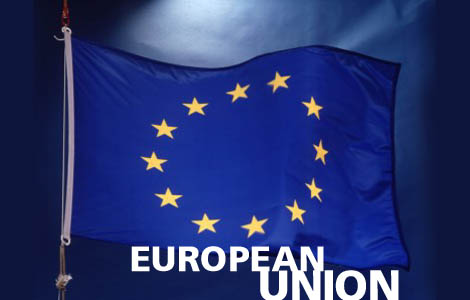Can Europe wean itself off Russian gas?
 Brussels - The European Union has not tried hard enough to wean itself from its dependency on Russian gas, and now it faces a tough struggle to restore its security.
Brussels - The European Union has not tried hard enough to wean itself from its dependency on Russian gas, and now it faces a tough struggle to restore its security.
That was the verdict of industry experts on Monday as EU leaders waited to see whether the Kremlin's latest promise to have the gas flowing to Europe by the morning would bear fruit.
"The EU energy market is not working properly. ... The lack of market reform is hurting Europe's energy security, it's as simple as that," Ian Cronshaw, head of the energy-diversification division at the International Energy Agency, told Deutsche Presse-Agentur dpa.
Europe relies on Russia for roughly one quarter of all the natural gas it burns, and 80 per cent of that gas arrives in the EU through pipelines crossing Ukraine.
This year, for the second time since 2006, that reliance proved to be a major weakness as a row between Moscow and Kiev saw Russia cut all gas deliveries through Ukraine - leaving the EU's top leaders calling impotently for a resumption of supplies.
The repetition of the crisis led to EU-wide calls for the bloc to reduce its reliance on its increasingly unpredictable neighbours.
And analysts say there are at least five ways for the EU to make its energy supplies more secure - if it is willing to pay for them.
First, the bloc could put more effort and funding into building pipelines to other gas suppliers, such as Azerbaijan and Algeria - especially the so-called "Nabucco" pipe from Azerbaijan to Austria.
That would "not be something you could do overnight," but would give a strong boost to the EU's energy security, Arianna Checchi, energy-security researcher at the Centre for European Policy Studies (CEPS) in Brussels, told dpa.
Secondly, it could expand its use of liquefied natural gas (LNG), a form of gas which can be transported by ship - and which therefore frees the consumer from relying on third-country pipelines.
The EU already imports some 50 billion cubic metres (bcm) of LNG per year, covering around 9 per cent of its total gas consumption, and it could more than double that figure, with the supply of LNG from Qatar in particular "expanding dramatically," Cronshaw said.
Officials also say that the EU could reduce its dependence on gas by boosting its use of renewable energy sources such as solar power, and by making its consumption of energy more efficient. EU leaders approved binding targets on both those issues at the end of December.
Finally, analysts say that the EU should put much more effort into linking the gas supply systems between its member states.
Slovakia and Bulgaria, for example, have been hard hit by the current crisis because they have no way of piping in gas from their EU neighbours, while the Baltic states and Finland are completely cut off from any source of gas except Russia.
In late November the European Commission - the EU's executive - proposed spending a large part of a 5-billion-euro (6.7-billion- dollar) pot of unused EU funds on international energy tie-ups such as Nabucco and a link between the Baltic States and Europe.
But EU member states are now grappling fiercely over the exact share each should have in the hand-out, in a sign of the political sensitivity of such high-cost projects.
And Cronshaw warned that even where such links exist, they do not always work effectively because the former monopolies in some member states block their commercial rivals from using them.
That reflects the EU's underlying problem, which is not to find a new recipe for energy diversification, but to find the money and political leverage to implement the current one.
"If it were easy, it would have been done already, but governments have to realize that this is the single most important thing to do," Cronshaw said.
And some experts question whether even the most ambitious projects will really reduce the EU's reliance on Russia, which has the world's largest reserves of gas - and a pipe feeding it directly to the EU.
"Diversifying from gas is one measure, but we will still need this source. The system in the EU is built on this, so we will still rely on Russia and Ukraine in the future," Checchi warned. (dpa)